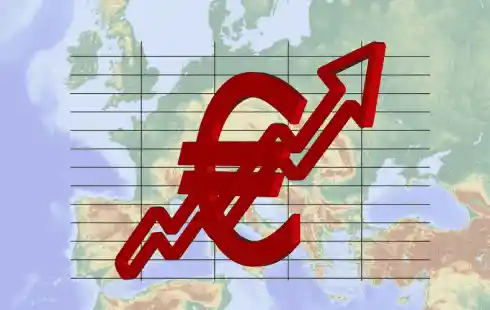
Crypto Investment Entry and Exit Strategies of Institutional Investors
Section: Business
 The Federal Statistical Office of Germany has reported an uptick in the inflation rate for December. The latest figures indicate a rate of 3.7%, following 3.2% in November and 3.8% in October. Cumulatively, 2023 witnessed an inflation rate of 5.9%, marking a notable decline from the initial 8% at the start of the year. Despite this decrease, Bundesbank President Joachim Nagel cautions against premature celebrations regarding the subsidence of inflation.
The Federal Statistical Office of Germany has reported an uptick in the inflation rate for December. The latest figures indicate a rate of 3.7%, following 3.2% in November and 3.8% in October. Cumulatively, 2023 witnessed an inflation rate of 5.9%, marking a notable decline from the initial 8% at the start of the year. Despite this decrease, Bundesbank President Joachim Nagel cautions against premature celebrations regarding the subsidence of inflation.
Recent detailed data from North Rhine-Westphalia highlights fluctuations in pricing. Notably, December 2023 saw a 21.1% drop in food prices compared to November 2023. While pasta and lettuce experienced reductions of 8% and 6.2%, respectively, grapes surged by 11.1% and peppers by 9.3%. Holger Schmieding, the chief economist at Berenberg, observes positive developments in the vacation sector: the inflation rate for package holidays dropped to 3% in December from 5.3% in November. Furthermore, while gasoline prices increased by 1.7%, diesel witnessed a 6% reduction. Bread, meat, and fruit prices climbed by 7.7%, 2.7%, and 12.9%, respectively, whereas heating oil saw a decline of 13.6%.
A significant contributor to December's inflationary rise in Germany is attributed to the statistical base effect. In December 2022, governmental interventions cushioned households from natural gas and district heating costs, leading to an artificially depressed price level. Consequently, December 2023 recorded more pronounced price escalations. The onset of 2023/2024 witnessed hikes in administrative prices, including the CO? tariff for fuel and heating. As the effects of the Gaza conflict and the Red Sea incident ripple through global insurance premiums, freight rates, and international trade prices, their full ramifications remain uncertain.
Future trajectories of inflation remain a topic of keen interest. The recent surge in December might either be an isolated event or could herald wage-driven price increments. Energy prices, previously suppressing inflation due to their comparative affordability in 2023 versus the tumultuous 2022 energy crisis, may soon reverse this trend. However, prevailing economic vulnerabilities could deter businesses from imposing elevated prices.
Christine Lagarde, the President of the European Central Bank (ECB), projects a 2.7% inflation rate for the euro area this year, moderating to 2.1% subsequently. Contrarily, Jörg Krämer, Commerzbank's chief economist, anticipates a decline in January's inflation, influenced by the diminishing base effect. Yet, he warns of a potential 1.2% overall consumer price hike in January, attributable to factors like increased VAT for eateries, gas, and district heating. Krämer predicts a modest inflation decrease in the ensuing months but opines that a 3% inflation rate is more plausible than the previously envisaged 2%.
Michael Holstein, DZ Bank's chief economist, shares a long-term perspective, asserting that inflation's specter looms for the forthcoming decades. He perceives an undue market optimism regarding inflation and ECB's interest rate strategies.
Image by Gerd Altmann from Pixabay

Section: Business

Section: Arts

Section: Arts

Section: Business

Section: Business

Section: Arts

Section: Health

Section: Arts

Section: News

Section: News
Health Insurance in Germany is compulsory and sometimes complicated, not to mention expensive. As an expat, you are required to navigate this landscape within weeks of arriving, so check our FAQ on PKV. For our guide on resources and access to agents who can give you a competitive quote, try our PKV Cost comparison tool.
Germany is famous for its medical expertise and extensive number of hospitals and clinics. See this comprehensive directory of hospitals and clinics across the country, complete with links to their websites, addresses, contact info, and specializations/services.
One of the most beautiful squares transforms into a summer stage every year for two days. The Gärtnerplatz Open-Air features a free music and cultural program across three stages, as well as street food from local vendors. On Saturday, the main stage at Gärtnerplatz offers something for everyone,...



No comments yet. Be the first to comment!